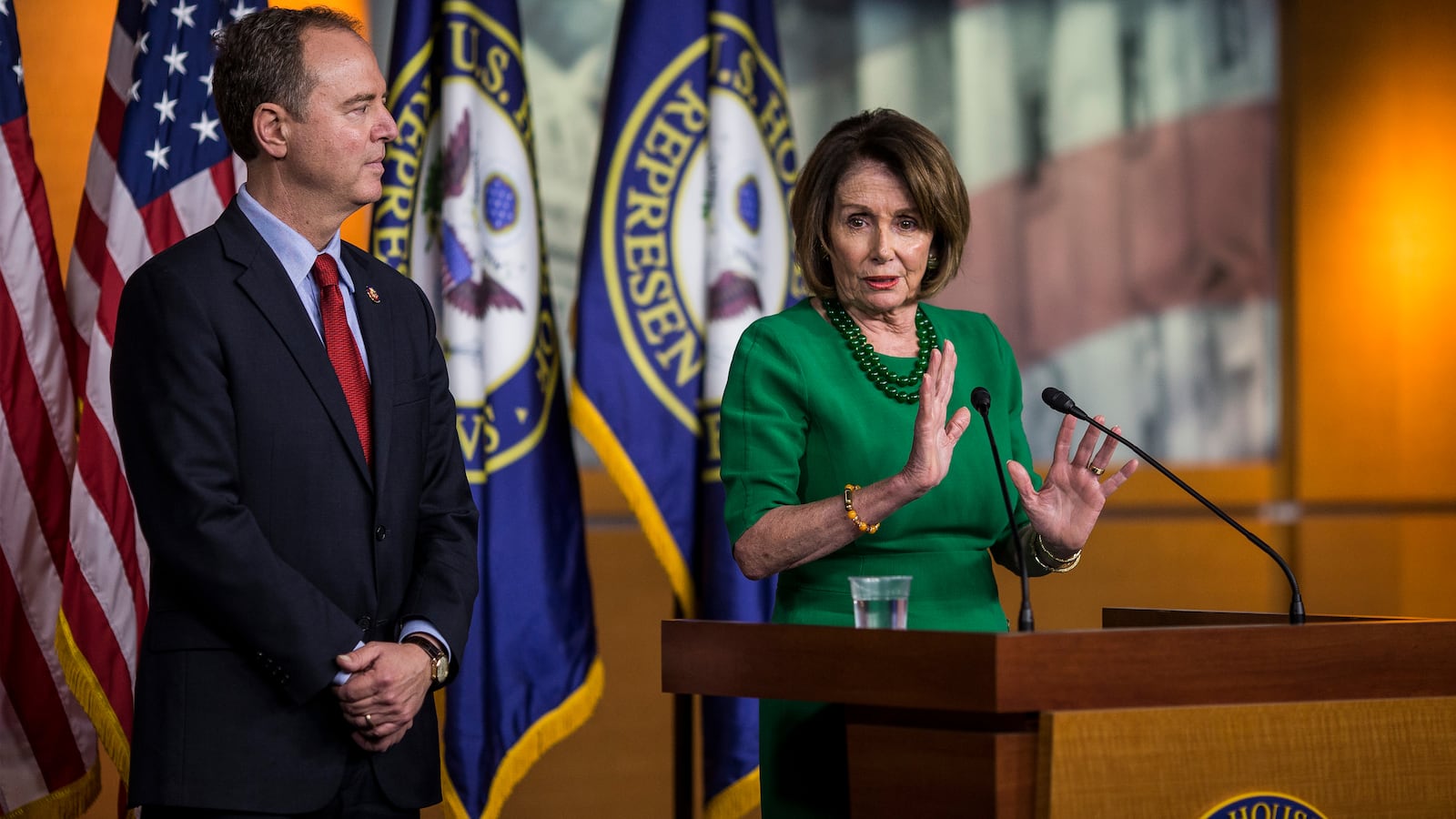The House of Representatives voted Thursday to pass a resolution to formalize the next steps of the impeachment inquiry into President Donald Trump.
The final tally was 232 to 196, with just two Democrats—Reps. Jeff Van Drew (D-N.J.) and Collin Peterson (D-MN)—voting no and no Republicans voting yes. Rep. Justin Amash (I-MI), a former Republican who turned Independent after announcing his support for impeachment proceedings, cast a yay vote.
Top House Democrats had resisted holding the vote for week as lawmakers pursued impeachment-related investigations in private. But they came around to supporting a resolution this week, amid Republican criticism about the process by which impeachment has been handled.
“The times have found us,” House Speaker Nancy Pelosi (D-CA) said on the House floor before introducing the resolution.
By Thursday morning, they were confident that there would be a strong show of support within the caucus for the resolution.
“Every member of the House of Representatives tomorrow will have to decide, ‘Are we going to put principle over party, the Constitution over corruption, and democracy over dereliction of duty?’” House Democratic Caucus Chairman Hakeem Jeffries told reporters Wednesday. “I expect the overwhelming majority of Democrats are going to support this resolution and it’s going to pass.”
While Thursday’s vote didn’t include drafting or approving articles of impeachment to send to the Senate for a trial, the measure is intended to provide clarity on the procedures that the chamber plans to follow as the inquiry continues. The resolution, unveiled on Tuesday, directs the House Oversight and Reform Committee, Intelligence Committee, and Foreign Affairs Committee to move forward with their investigations and also lays the groundwork for the Intelligence Committee to provide public transcripts of private depositions.
The House opened the impeachment inquiry into Trump after a whistleblower claimed Trump withheld military support promised to Ukraine in order to pressure the country’s government into investigating 2020 Democratic frontrunner and former Vice President Joe Biden and his son, Hunter.
Trump has denied any wrongdoing throughout the process, and has called the impeachment inquiry a “witch hunt.” The White House also criticized the resolution on Tuesday.
“The resolution put forward by Speaker Pelosi confirms that House Democrats’ impeachment has been an illegitimate sham from the start as it lacked any proper authorization by a House vote,” White House spokeswoman Stephanie Grisham said in a statement.
Thursday’s vote comes as House investigators continue to hear closed-door testimonies from senior administration officials into the Trump administration’s efforts to pressure Ukraine into investigating Ukrainian company Burisma Holdings, where Hunter Biden sat on the board of directors. Congressional investigators formally asked Trump’s former national security adviser John Bolton to testify in their impeachment inquiry Wednesday, along with White House lawyers John Eisenberg and Michael Ellis.
Lt. Col. Alexander Vindman, who listened in on the July 25 phone call between Trump and Ukrainian President Volodymyr Zelensky, reportedly told investigators on Tuesday that he was so disturbed by what he heard on the call that he reported his concerns to the National Security Council’s top lawyer.
The resolution does not clarify when the inquiry will shift into public hearings. However, Politico reports that lawmakers have privately speculated that the public portion could start sometime before Thanksgiving.
The resolution also does not specify when impeachment investigators must send their findings to the House Judiciary Committee so it can weigh articles of impeachment—which will remain that panel’s responsibility—but many Democrats would like to see that process wrapped up by the end of the year.





